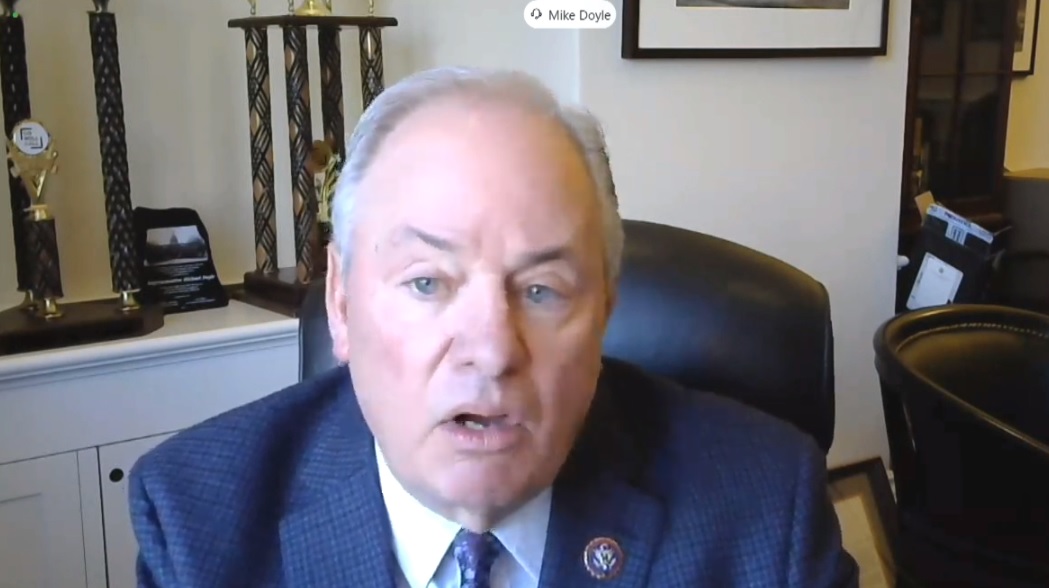House Dems: Disinformation Hearing Is Spotlight, Not Cudgel
Republicans say it is political attack on disfavored speech

The smarter way to stay on top of the multichannel video marketplace. Sign up below.
You are now subscribed
Your newsletter sign-up was successful
House Democrats said their Wednesday (Feb. 24) hearing in the Communications Subcommittee entitled "Fanning the Flames: Disinformation and Extremism in the Media" was not an assault of the First Amendment or speech freedoms of those media, but an attempt to open a dialog and debate on their role in disinformation toward the end of curbing it.
Also Read: House Democrats Pressure Distributors
Republicans begged to differ, saying the hearing, in combination with a letter from House Democrats to distributors pressing them on carriage of Fox News, Newsmax TV and OANN, was clearly a threat to the First Amendment and a political effort to censor speech Democrats disagreed with.
The twain did not meet, at least during today's hearing.
Driving the issue for Democrats was the pandemic and what they said was disinformation on traditional media, like downplaying its severity or the need for masks, as well as the Jan. 6 Capitol Insurrection, part of the blame for which Rep. Anna Eshoo (D-Calif.), one of the legislators who wrote distributors, said was built on a "foundation of lies" some of them coming from the media echo chamber about bogus claims of election fraud.
Trying to separate the hearing from the accusations Democrats were censoring speech, Eshoo said she recognized that the First Amendment prevents Congress from abridging speech, but did not stop Congress from examining the impact of misinformation.
Subcommittee Republican Leader Bob Latta (R-Ohio) was not assuaged, he said that while disinformation was a serious issue, the hearing was instead about the majority silencing certain viewpoints, including by asking private companies to stop carrying certain news content.
The smarter way to stay on top of the multichannel video marketplace. Sign up below.
He called the hearing deeply troubling and a case of doubling down on the left's cancel culture instead of encouraging factual local and national news.
Rep. Steve Scalise (R-La.) called for some balance in calling out extremist speech's impact on action. He pointed out that when he and a dozen others were shot in 2017 while practicing for a congressional softball game was fueled by "hypercharged" rhetoric from the left. Scalise said that criticism should be consistent and not "from only one part of the spectrum."
Also Read: Hill Media Letter Is Intimidation
Rep. Frank Pallone (D-N.J.) also said he was a staunch defender of the First Amendment which he conceded meant Congress could not pass laws limiting controversial speech. But he said that does not mean they should ignore disinformation that causes harm, and the hearing was meant to put a spotlight on the issue and prompt an open dialog to help solve a "dangerous problem."
He said some of the questions it raises may be uncomfortable, but could help journalists find ways to cover controversial issues that don't undermine democracy, ways he says they "have to try to find."
Pallone said too many outlets have not seriously wrestled with their orle in spreading disinformation and that the hearing "spotlight" on a "smart and sensible" discussion is the best hope for addressing the challenge, that challenge being what he called in some cases daily doses of of disinformation amplified on broadcast and cable, which disinformation and extremism he said was a threat to the country.
Also unassuaged was Rep. Cathy McMorris Rodgers (R-Wash.), Republican's leader of the parent committee, wh said there has never been a more obvious direct attack on the First Amendment, despite what the Democrats were saying.
Also Read: FCC's Carr Says Dems Are Trying to Censor Newsrooms
She said the Democrats' effort was an abuse of power and the "deeply troubling" hearing was a hyperpartisan attempt to "shame and blame." She said not just right-wing media, but CNN and MSNBC should be troubled by attempts by elected official to pressure private companies, which sounded to her more like something coming out of the Chinese Communist Party.
“Should CNN still be carried after hosting Governor Cuomo? For months, liberal media lauded him and legitimized his lethal response to COVID-19. He even won an Emmy for his use of TV to spread misinformation," she said. but ultimately has concluded that both sides should be free to speak their minds.
Rather than censorship and silence, she said, the answer is more speech.
She was backed in that view by witness and George Washington University Law professor Jonathan Turley. "I believe that free speech is the greatest protection against bad speech," he told the legislators. "That view is admittedly under fire and indeed may be a minority view today, but history has shown that public or private censorship does not produce better speech. It is a self-replicating and self-perpetuating path that only produces more censorship and more controlled speech. I encourage you (indeed I implore you) not to proceed down that slippery slope toward censorship."
Witness and veteran journalist Soledad O'Brien said there was a big issue with traditional media disinformation, but also said the answer was more responsible journalism, not government intervention (https://www.nexttv.com/news/soledad-obrien-paints-damning-portrait-of-media-disguised-as-journalism).
Contributing editor John Eggerton has been an editor and/or writer on media regulation, legislation and policy for over four decades, including covering the FCC, FTC, Congress, the major media trade associations, and the federal courts. In addition to Multichannel News and Broadcasting + Cable, his work has appeared in Radio World, TV Technology, TV Fax, This Week in Consumer Electronics, Variety and the Encyclopedia Britannica.

